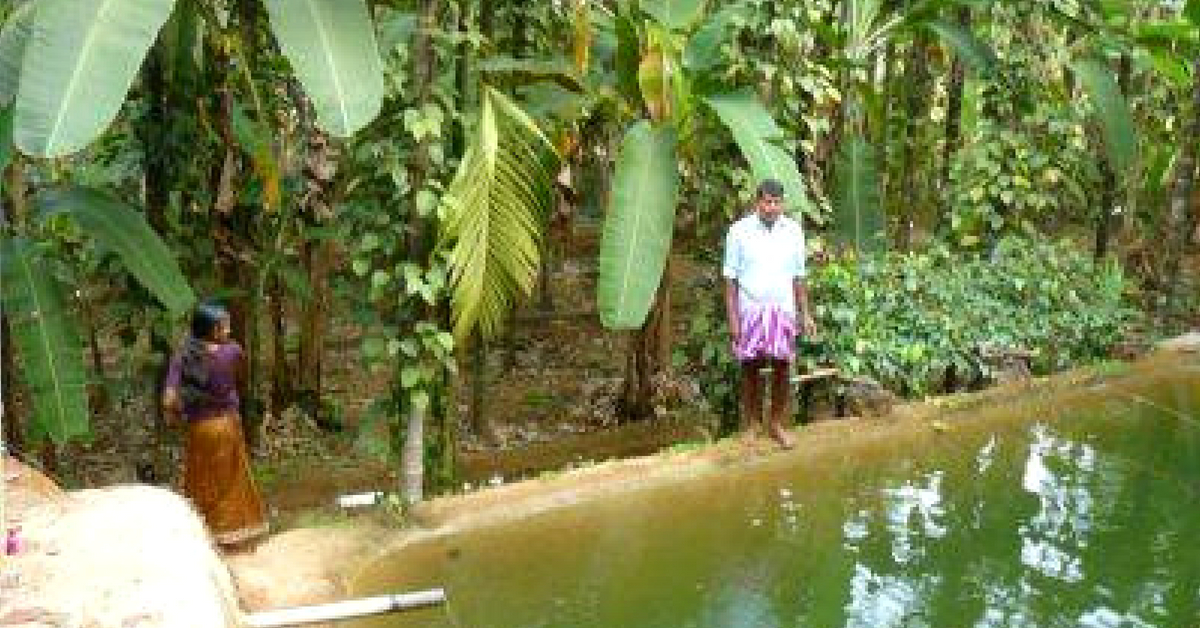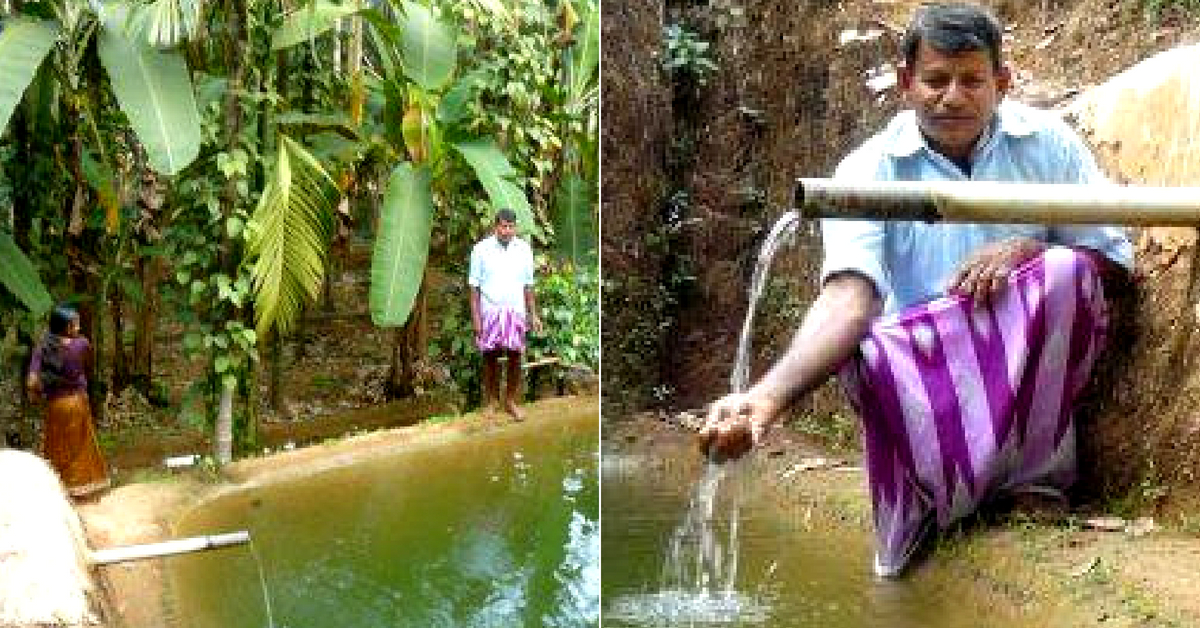Amai Mahalinga Naik is a farm labourer and a green revolutionary, known to many as the ‘one-man-army’ because he singlehandedly transformed a barren plot of land measuring two acres, into a lush organic farm!
Today, Naik’s farm near Mangaluru, Karnataka has over 300 areca nut palms, 75 coconut trees, 150 cashew trees, 200 banana plants and pepper vines.
However, 40 years ago, when he had just started out, the entire land was completely barren, and there was no reliable source of water.
In 1978, Naik was a labourer on a farm where areca palm and coconut trees were grown. Hardworking and dedicated, he impressed Mahalinga Bhat, the owner of the farm.
Speaking to the New Indian Express, Naik said,
“Pleased by my sincerity, the landlord gifted a barren land to me in 1978. However, my dream to raise an areca nut farm atop rocky hills with poor vegetation was initially mocked by all.”

That time, Naik did not even have a house of his own, and this gift from Bhat was no less than a blessing. The first thing he did was to build a hut for his family. But with no source of water even for his home, let alone a whole farm, Naik needed to find a solution. And instead of spending money that he didn’t have on digging up a well, Naik decided to use his own strength.
“I started to work. I decided to rely on the ancient method of water harvesting, Suranga (tunnel) as there was no water source for irrigation nearby,” he told NIE.
Naik’s house was at the foot of the hill so he started digging horizontally (up the hill, instead of vertically, as in digging a well). Every day, he laboured in Bhat’s farm and returned home only to start digging the tunnel all by himself.
“I used to light four or five-wick lamps, and instead of kerosene, I used coconut oil, which releases little to no smoke,” he told the Deccan Herald.
“The tunnel was narrow, so I had to crawl on all fours and crouch to hold the metal basket between my legs for collecting the excavated soil. Toiling for as many as six hours a day under the flickering light, I sometimes needed to be told to stop working by my wife who would come searching for me after 9 pm,” he tells NIE.
This was just the beginning of what would probably be the longest five years of Naik’s life. The villagers were already mocking Naik’s idea of traditionally harvesting water. Add to that an added labour of six hours every day, digging up a tunnel which did not guarantee that he would find a water source.
His first tunnel, of which he had dug about 20 metres, collapsed. So he gave up on that and started digging another. No sign of water, big boulders and collapsing of tunnels led four of Naik’s tunnel into failures.
You may also like: Undeterred by Taunts, Maharashtra Farmer Grows ‘Evergreen’ Tribute to 700 Martyrs!
However, Naik persevered and struck gold while digging the fifth tunnel. “One fine day, when I reached about 35 metres, I found a spring and my joy knew no bounds,” he says, and for him, this was worth all the hard work he had put in.
By connecting this tunnel to his home, Naik ensured that he received water at his doorstep. “Even during the peak of summer, I get 6,000 litres of water a day which flows to a cement storage tank through gravitational force,” he told DH.
And then he started to cultivate crops on the land which was previously barren.
Naik truly knows the worth of water, and even as he receives an abundant of it through the natural spring, he does not waste it.
Naik harvests rainwater as well as ‘grey-water’ to water his farms. Speaking to NIE, he said, “Even the ‘grey water’—relatively clean waste water from washing and bathing—is diverted to a cement tank of 3,500 litres. Ninety-nine per cent of trees in the farm were raised from ‘discards’ given to me by landowners. Still, there is no difference in yield.”
You may also like: After Govt Ignores Father’s Pleas, Sisters Work for 4 Months to Dig Up Well!
For over 35 years, Naik and his wife have lovingly tended to a plot of previously barren land, which has given them abundant returns. If you happen to visit the couple now, you will never believe that this land had nothing but a few stray bushes and no source of water.
Even without a proper education, land or resources, Naik has shown that through sheer hard work, one can overcome every obstacle that comes their way and change the impossible into reality.
(Edited by Gayatri Mishra)
Like this story? Or have something to share?
Write to us: contact@thebetterindia.com
Connect with us on Facebook and Twitter.
If you found our stories insightful, informative, or even just enjoyable, we invite you to consider making a voluntary payment to support the work we do at The Better India. Your contribution helps us continue producing quality content that educates, inspires, and drives positive change.
Choose one of the payment options below for your contribution-
By paying for the stories you value, you directly contribute to sustaining our efforts focused on making a difference in the world. Together, let's ensure that impactful stories continue to be told and shared, enriching lives and communities alike.
Thank you for your support. Here are some frequently asked questions you might find helpful to know why you are contributing?

